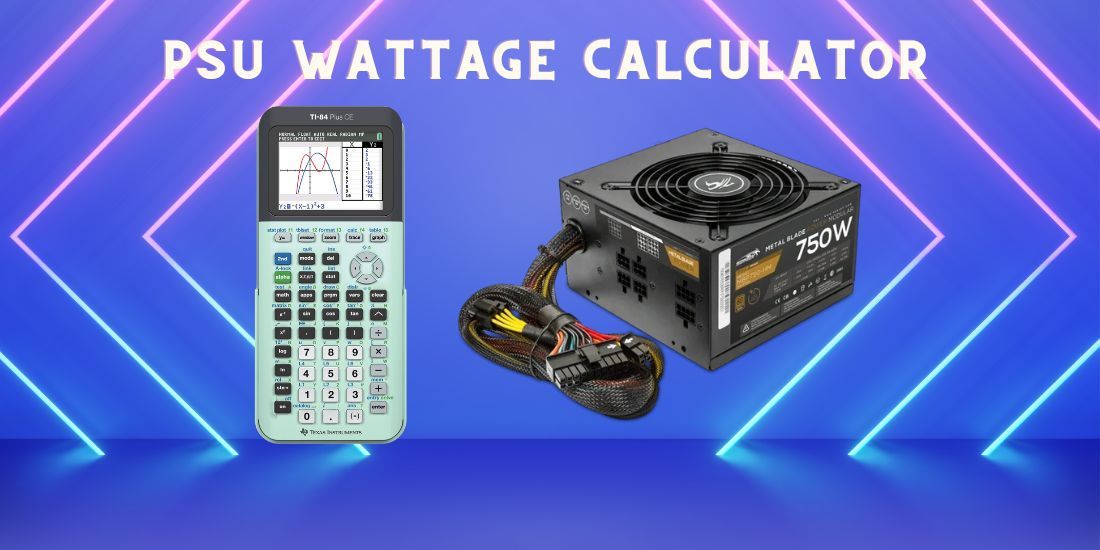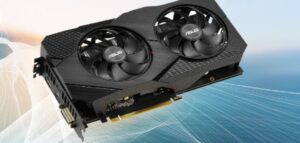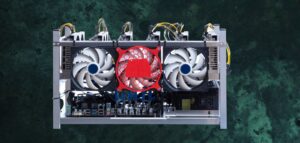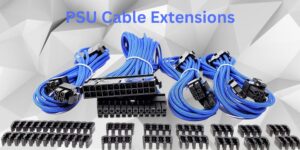Is Too Much PSU Wattage Bad? Exploring the Power Play
When building or upgrading a PC, selecting the right power supply unit (PSU) is crucial for ensuring your system runs smoothly. One of the most common questions PC builders ask is whether having too much PSU wattage is bad for their system. After all, a higher-wattage PSU can provide more power, but does it offer any additional benefits, or could it cause issues down the line? In this article, we’ll explore the relationship between PSU wattage and your system’s performance. We’ll break down how to determine the right amount of wattage for your components, and explain whether higher wattage might affect the longevity or efficiency of your PC. We’ll also discuss the common myths surrounding PSU wattage, helping you make an informed decision that fits your system’s needs without overpaying for unnecessary power. Whether you’re building a gaming rig or a work PC, understanding PSU wattage is key to creating a stable, efficient setup.
Understanding PSU Wattage:
What is PSU Wattage?
PSU wattage refers to the maximum amount of electrical power that a power supply unit (PSU) can provide to the various components of your computer. This power is necessary to run components such as the CPU, GPU, motherboard, RAM, storage devices, and any other peripherals you may have. Essentially, the PSU converts electrical power from your wall outlet into a form that your computer’s components can use, and the wattage specifies how much power the PSU can supply at once.
For example, if you’re building a high-performance gaming PC or a workstation, you’ll need a PSU that can supply enough power to handle demanding components like a high-end GPU, multi-core CPU, and extra storage devices. A 500W PSU might be fine for a basic PC, but if you’re adding powerful components like an RTX 4090 GPU, you’ll likely need something much higher, such as a 750W or 1000W PSU. The wattage also plays a role in the safety of your system. A PSU with higher wattage ensures that there’s always enough power to support the system’s components, even under heavy load. However, it’s not just about the total wattage; you need to consider how well it matches the actual power needs of your system.
Why is it Important to Choose the Right PSU?
Choosing the right PSU wattage is vital for several reasons:
System Stability:
- If your PSU doesn’t provide enough power, your PC will become unstable, especially when running demanding applications like gaming, video editing, or 3D rendering. Insufficient power can cause crashes, freezes, or even hardware damage in extreme cases. Conversely, if you choose a PSU with too much wattage, it might not deliver optimal efficiency.
Longevity of Components:
- Underpowered PSUs can cause overload conditions, leading to overheating or even permanent damage to your PC components. On the other hand, a PSU with more wattage than your system needs doesn’t necessarily harm the components but can lead to inefficiencies. The PSU may not operate at its peak efficiency, which can increase power consumption, heat generation, and overall wear.
Energy Efficiency:
- PSUs come with various efficiency ratings, such as 80 Plus certifications. These ratings tell you how efficiently a PSU converts AC power from the wall into DC power for your system. A PSU that’s too large for your needs may not operate efficiently, especially if it’s not being used close to its full capacity. For example, a 1000W PSU may operate at a lower efficiency when your system only requires 400W. Efficiency is key to reducing electricity costs and minimizing excess heat.
Understanding the Impact of PSU Wattage on PC Performance:
1: How Wattage Affects Performance:
The wattage of a power supply unit (PSU) does not directly enhance the performance of your computer. Instead, performance is primarily determined by components such as the CPU, GPU, RAM, and storage. However, adequate wattage is crucial for ensuring that these components receive stable and sufficient power, which is essential for optimal operation. Insufficient power can lead to instability, crashes, or even hardware damage due to inadequate voltage regulation.
2: Myths About PSU Wattage and Performance:
A common misconception is that higher wattage automatically translates to better system performance. This belief overlooks the fact that a PSU’s primary role is to meet the specific power requirements of the components. If your system requires 500 watts, using a 1000-watt PSU does not provide additional performance; it merely offers a buffer against potential power shortages.
3: The Role of Efficiency in Power Supply Units:
Efficiency is another critical factor when considering a PSU. It refers to how effectively a PSU converts AC power from the wall into DC power used by the computer. Higher efficiency ratings (e.g., 80 Plus Bronze, Silver, Gold) indicate less energy waste and lower heat generation, which can prolong the lifespan of both the PSU and other components. A higher wattage PSU may operate more efficiently under certain loads, but excessively high wattage can lead to inefficiencies if the system consistently draws low power.
4: Voltage Regulation and Stability:
Stable voltage regulation is vital for maintaining performance. A PSU that cannot provide consistent voltage may cause fluctuations that affect component performance and longevity. This is particularly important for high-demand tasks such as gaming or content creation, where stable power delivery is critical for maintaining frame rates and responsiveness
Can You Overpower Your PC with a Too-High-Wattage PSU?
Risks and Drawbacks of Using a Higher Wattage PSU:
While using a higher wattage PSU is generally safe, it can lead to several inefficiencies and drawbacks:
- Inefficiency: A PSU that exceeds the power requirements of your system may operate inefficiently. Most PSUs are most efficient at around 50-80% of their rated capacity. Operating significantly below this range can result in wasted energy and increased heat generation.
- Cost and Size: Higher wattage PSUs typically use more materials in their construction, which can lead to increased costs and larger physical sizes. This can be a disadvantage in cases where space is limited within a PC case.
- Heat Generation: Excessive wattage can lead to more heat being generated, particularly if the PSU is not operating at optimal efficiency. Increased heat can affect the longevity of both the PSU and other components in the system.
Is There a “Sweet Spot” for PSU Wattage?
Yes, there is a “sweet spot” for PSU wattage that varies based on your specific system configuration:
- General Recommendation: For most gaming PCs, a PSU rated between 500W to 850W is usually sufficient. This range accommodates typical single-GPU setups without excess capacity that could lead to inefficiencies.
The Importance of Efficiency in a PSU:
Understanding 80 Plus Certification:
Efficiency is a critical factor when selecting a power supply unit (PSU), and the 80 Plus certification serves as a standard to gauge this efficiency. Introduced in 2004, this certification indicates that a PSU operates at a minimum of 80% efficiency at various load levels (20%, 50%, and 100%). This means that less power is wasted as heat, allowing more usable energy to be delivered to the components of your PC, ultimately leading to lower electricity bills and reduced environmental impact. The 80 Plus certification has several tiers, each representing higher efficiency ratings:
- 80 Plus Standard: Guarantees at least 80% efficiency across specified loads.
- 80 Plus Bronze: Offers 82% efficiency at 20% load, 85% at 50%, and 82% at full load.
- 80 Plus Silver: Provides 85% efficiency at 20%, 88% at 50%, and 85% at full load.
- 80 Plus Gold: Achieves 87% efficiency at 20%, 90% at 50%, and 87% at full load.
- 80 Plus Platinum: Delivers 90% efficiency at 20%, 92% at 50%, and 89% at full load.
- 80 Plus Titanium: Requires a minimum of 90% efficiency at low loads (10%) and up to 94% at higher loads (100%).
How Efficiency Affects Electricity Usage and Heat Generation:
A PSU with higher efficiency not only reduces electricity usage but also generates less heat. This has several benefits:
1: Reduced Wear on Components: Operating at lower temperatures and with less wasted energy reduces wear on the PSU itself and other components in the system. This can lead to improved reliability and longer lifespans for your hardware.
2: Cooler Operation: Lower heat generation leads to a cooler overall system, which can enhance the longevity of components. Excessive heat can cause thermal throttling in CPUs and GPUs, negatively impacting performance.
3: Lower Energy Costs: More efficient PSUs convert more of the input power into usable output, which translates into lower electricity bills. For example, an 80 Plus Gold-rated PSU is significantly more efficient than a non-certified one, meaning it wastes less power as heat.
What Happens When You Use Too Much PSU Wattage?
Excess Power Supply and Its Effects on the Components
Using a power supply unit (PSU) with a higher wattage than necessary does not directly damage your components; rather, it can lead to inefficiencies. Here are the key effects of using an excessively high-wattage PSU:
- Unnecessary Heat Generation: While a PSU does not “force” power into components, running a unit that provides more power than required can lead to increased heat output. This is because the PSU may operate less efficiently at lower loads, potentially leading to higher operating temperatures over time.
- Energy Wastage: Higher wattage PSUs can result in wasted energy. When the PSU operates below its optimal load range, it may draw more power from the wall than a smaller, appropriately rated unit would. This inefficiency translates into higher electricity bills and increased environmental impact.
- Reduced Lifespan of Components: The additional heat generated by an oversized PSU can contribute to wear and tear on both the PSU itself and other components in the system. Over time, this can lead to reduced reliability and a shorter lifespan for your hardware.
Why Does It Matter for Long-Term Usage?
The long-term implications of using an oversized PSU are significant:
- Increased Operating Costs: Inefficiencies in power delivery can lead to higher electricity costs. For example, if a system only requires 300 watts but is powered by a 750-watt PSU, the excess capacity may not be utilized effectively, leading to wasted energy.
- Heat Management Issues: As mentioned earlier, running at lower loads can generate more heat than necessary. This necessitates effective cooling solutions to manage temperatures, which can add complexity and cost to your setup.
- Environmental Impact: Inefficient power usage contributes to a larger carbon footprint. By using a PSU that matches your system’s requirements, you can minimize energy waste and promote a more eco-friendly computing environment.
How to Choose the Right PSU Wattage?
Selecting the correct PSU wattage is crucial for ensuring your PC operates efficiently and reliably. To determine how much power your components consume, you can utilize online PSU calculators. These tools allow you to input your specific components and provide an estimate of your system’s total power needs. This estimation helps in selecting a PSU that can adequately support all parts without being excessively oversized.
Factors Influencing the Required Wattage:
Several key factors influence the wattage needed for your PSU:
- CPU: High-performance processors, especially those designed for gaming or intensive tasks, require more power. For example, CPUs with higher core counts or those that support overclocking will typically have higher wattage demands.
- GPU: The graphics card is often the most power-hungry component in a gaming PC. High-end GPUs, such as the NVIDIA GeForce RTX 4090, consume significantly more power than mid-range options. It’s essential to consider the GPU’s power requirements when calculating total wattage.
- Peripherals: Additional components like extra hard drives, SSDs, cooling fans, RGB lighting, and other peripherals can increase the overall power requirement. Each of these components contributes to the total wattage needed from the PSU.
Recommended Tools for Calculation:
To simplify the process of determining your PSU needs, several online calculators can assist:
- Cooler Master PSU Calculator: Users can input detailed configurations to receive precise wattage recommendations.
- Corsair PSU Calculator: This tool allows users to enter their CPU and GPU models and automatically adds wattage for other components like RAM and storage.
- PC Builder Power Supply Calculator: This calculator helps estimate the required wattage based on selected components.
- OuterVision Power Supply Calculator: Known for its accuracy, this calculator considers various configurations and even allows for overclocking adjustments.
Estimating Your PSU Wattage Needs:
Tools and Methods to Calculate Wattage:
Estimating the appropriate wattage for your power supply unit (PSU) is crucial for ensuring that your PC components operate efficiently and reliably. Various online tools can help you accurately calculate your system’s wattage needs by taking into account the specific components you plan to use. Here are some popular PSU wattage calculators:
1: PC Builds Power Supply Calculator: This tool allows you to enter your system specifications and provides a detailed estimate of the required wattage, including idle, minimal, and recommended wattage levels.
2: Corsair PSU Calculator: A user-friendly tool where you can input your CPU, GPU, and other components. It automatically accounts for additional power consumption from fans, RAM, and storage, ensuring you have a safe margin.
3: OuterVision Power Supply Calculator: Known for its accuracy, this calculator offers both basic and advanced options to estimate power consumption. It allows users to factor in overclocking and provides recommendations based on efficiency ratings.
4: Cooler Master PSU Calculator: This tool helps determine the power supply requirements by allowing users to input various components, ensuring precise wattage recommendations tailored to your build.
5: FSP Power Supply Calculator: This calculator uses peak power consumption data from manufacturers to provide accurate wattage estimates based on the components you select.
The Benefits of Matching PSU Wattage to Your System’s Needs:
Selecting a PSU that closely matches your system’s power requirements offers several advantages:
Stability:
- Matching the PSU wattage to your system’s needs ensures stable power delivery. This stability helps prevent crashes or issues related to insufficient power during high-demand scenarios, such as gaming or heavy multitasking.
Power Efficiency:
- A properly rated PSU will deliver optimal power without wastage. Operating within the ideal load range (usually 50-80% of the PSU’s capacity) ensures that the unit runs efficiently, minimizing energy loss as heat.
Longevity:
- Components that receive stable and adequate power tend to run cooler, which reduces wear over time. This can prolong the lifespan of both the PSU and other hardware components in your system.
Should You Upgrade to a Higher Wattage PSU?
Signs That Your Current PSU is Not Enough:
Recognizing when your power supply unit (PSU) is inadequate is essential for maintaining system stability and performance. Here are some common signs indicating that it may be time to upgrade:
1: System Crashes and Shutdowns:
If your computer frequently crashes, especially under heavy load (like gaming or video rendering), or shuts down unexpectedly, this could indicate that your PSU is unable to provide sufficient power to your components.
2: Random Reboots:
A PSU that cannot handle the power demands of your system may cause random reboots. This can be particularly evident during resource-intensive tasks, where the PSU struggles to deliver stable voltage.
3: Adding New Components:
If you’re planning to add more powerful components, such as a new GPU or additional drives, your existing PSU may not have enough wattage to support the increased demand. For example, high-end GPUs require significantly more power than mid-range options.
4: Physical Signs of Wear:
Look for physical signs such as bulging capacitors, scorch marks, or unusual noises (buzzing or clicking) from the PSU. These can indicate that the unit is failing and may not provide reliable power.
Why Upgrading Can Sometimes Be Unnecessary?
While there are clear signs that indicate a need for a PSU upgrade, there are also situations where upgrading may not be necessary:
1: No Plans for Major Upgrades: If you are satisfied with your current performance and do not intend to add high-demand components shortly, sticking with your existing PSU can be a cost-effective choice. It’s advisable to upgrade only when there’s a clear necessity.
2: Stable Performance with Current Setup: If your system runs smoothly without issues and you do not plan to upgrade any components, there may be no need to replace your PSU. A well-functioning lower wattage PSU can continue to meet your needs effectively.
Pros and Cons of a Higher Wattage PSU:
Pros: Headroom for Future Upgrades:
One of the primary advantages of investing in a higher wattage PSU is the headroom it provides for future upgrades. Here are some key benefits:
- Future-Proofing: If you plan to upgrade components such as your CPU or GPU in the future, having a higher wattage PSU ensures that your system can handle the increased power demands without requiring an immediate replacement. This can save you time and money in the long run.
- Stable Performance: A PSU with higher wattage can maintain stable power delivery even under peak loads. This stability is crucial during resource-intensive tasks like gaming, video editing, or running multiple applications simultaneously.
- Flexibility for Additional Components: As you expand your system with additional drives, cooling solutions, or peripherals, a higher wattage PSU can accommodate these changes without compromising performance. This flexibility is particularly beneficial for users who frequently upgrade their systems.
Cons: Increased Size, Weight, and Cost:
While there are clear advantages to a higher wattage PSU, there are also several downsides to consider:
- Potential for Inefficiency: Operating a PSU at significantly lower loads than its maximum capacity can lead to decreased efficiency. Most PSUs achieve optimal efficiency between 50% and 80% of their rated capacity. If your system typically draws only 200 watts from a 1000-watt PSU, it may operate outside its most efficient range, leading to wasted energy and increased heat generation
- Increased Size and Weight: Higher wattage PSUs tend to be larger and heavier than their lower-wattage counterparts. This can pose challenges in terms of fitting the unit into smaller cases and may require additional space for airflow.
- Higher Cost: Higher wattage PSUs generally come with a steeper price tag. If your current system does not require the extra power, investing in a more powerful unit may not be cost-effective. You may end up paying for wattage that you do not utilize.
Conclusion
In conclusion, selecting the right power supply unit (PSU) is vital for ensuring your PC operates efficiently and reliably. Understanding your system’s power requirements through online calculators can help you choose a PSU that meets your needs without excess wattage. While higher wattage PSUs provide benefits such as headroom for future upgrades and stable performance under load, they also come with drawbacks, including increased size, weight, cost, and potential inefficiencies when operating below optimal load levels. It’s essential to assess your current setup and plans to determine whether an upgrade is necessary. Ultimately, the ideal PSU balances immediate power needs with the flexibility for future enhancements, ensuring a stable and efficient computing experience while minimizing energy waste and costs. By making informed decisions about your PSU, you can enhance your system’s longevity and performance.
FAQs
Q1: Can a PSU with too much wattage damage my components?
A1: While direct damage is unlikely, an overpowered PSU can generate excess heat, potentially compromising the longevity of your components.
Q2: Are higher-wattage PSUs always more efficient?
A2: No, higher-wattage PSUs operate most efficiently within a specific load range. Going beyond that range can lead to decreased efficiency and higher energy bills.
Q3: Should I consider future upgrades when choosing a PSU?
A3: Yes, but wisely. Consider the realistic lifespan of your components and choose a PSU that accommodates potential upgrades without overdoing it.
Q4: Do all high-wattage PSUs come in large sizes?
A4: Not necessarily, but many do. Ensure compatibility with your PC case and prioritize proper airflow for system health.
Q5: Can an overpowered PSU cause system instability?
A5: Yes, excessive heat generated by an overpowered PSU can lead to instability, affecting overall performance and reliability.
Last Updated on 28 January 2025 by Ansa Imran

Ansa Imran, a writer, excels in creating insightful content about technology and gaming. Her articles, known for their clarity and depth, help demystify complex tech topics for a broad audience. Ansa’s work showcases her passion for the latest tech trends and her ability to engage readers with informative, well-researched pieces.







